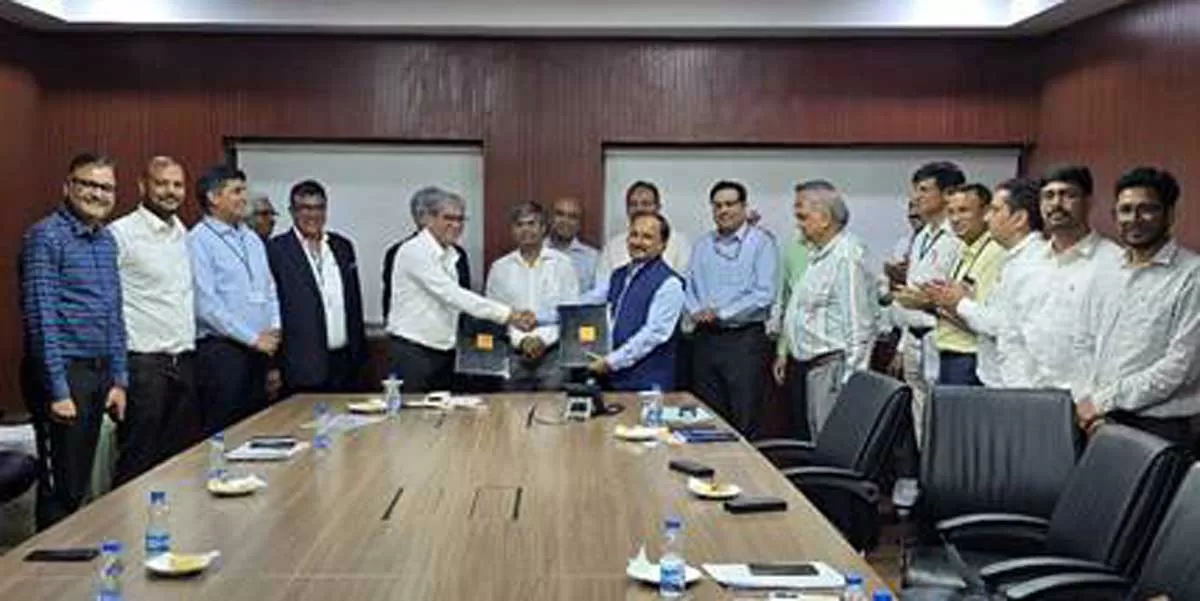The Indian MSME sector and construction industry were struggling in the pre lockdown era. There were multiple issues for MSMEs, like access to bank/NBFC credit, dumping/competition from international suppliers, delayed payment by government departments, CPSE and industry in general, labour law compliance like payment of EPF/ESIC. The construction industry was also facing issues like bank credit, depleting order book, delayed payment from government and private sector. We have seen multiple MSME and construction industry ratings being downgraded only because of non payment of their bills in due time. This has put unintended burden on MSME and construction industries.
In response to COVID-19, The Government of India had announced lockdown since March 2020, which also stalled operations of MSMEs and the construction industry. This has also created havoc on balance sheet of MSME and the construction industry. They were facing double whamy, viz, to incur fixed cost like rentals, electricity, salary payments etc, and no cash flow from their customers. This had put industry in precarious situation. The Government of India has also mandated that no employees can be retrenched during lockdown period and salaries will be paid to all employees.
In response to the industry demand, the government came with a fiscal stimulus-1 wherein it has agreed to reimburse EPF contribution for MSME with less than 100 staff and capped contribution to employees with salary of Rs 15,000. The Reserve Bank of India also came out with liquidity measures with additional refinance limits for banks in form of LTRO and additional credit line. However, this has not given desired results since banks were averse to further lending in this environment.
Prime Minister Narendra Modi has announced on May 12, 2020, that the government will announce a fiscal stimulus of Rs 20 lakh crore to benefit the Indian industry and to achieve “AtmaNirbharta”.
In continuation with Prime Minister announcement, Finance Minister Nirmala Sitharaman has announced first package for targeting MSMEs and the construction industry. The brief proposals are as under:
MSME sector
1. Credit Guarantee Fund of Rs 3 lakh crore for business including MSME without collateral: The government has announced credit guarantee fund of Rs 3 lakh crore for lending to Industry including MSME. Under this scheme, banks and financial institutions will lend money to MSME without any collateral. The units with turnover of Rs 100 crore with outstanding limit up to Rs 25 crore shall be eligible under this scheme. Under this scheme, an amount of 20 per cent of outstanding credit limit as on February 29, 2020, will be sanctioned. As per under this scheme, funds will be disbursed for four years tenure with moratorium of 12 months. The banks and NBFCs will not ask for any additional collateral or guarantee from borrowers. The interest rate will be capped. The funds will be disbursed till October 2020 under this scheme. This scheme will be a really great help to MSME sector which was starved for working capital and funds required for their expansion. This will help MSME to shore up their working capital and increase their production capacity resulting in increased employment and taxes.
2. Change in definition of MSME: The government has issued revised guidelines for classification of MSME. Under new guidelines, the segregation between service and manufacturing units has been done away with. New guidelines make classification on investment and turnover basis. The revised classifications are as under:
|
Existing MSME classification
|
|
Criteria: Investment in Plant and Machinery
|
|
Classification
|
Micro
|
Small
|
Medium
|
|
Manufacturing
|
Investment
< Rs 25 lakh
|
Investment
< Rs 5 crore
|
Investment
< Rs 10 crore
|
|
Service
|
Investment
< Rs 10 lakh
|
Investment
< 2 crore
|
Investment
< Rs 5 crore
|
|
Revised
MSME Classification:
Composite
Criteria: Investment and Annual Turnover
|
|
Classification
|
Micro
|
Small
|
Medium
|
|
Manufacturing
and Service
|
Investment
< 1 crore and Turnover < Rs 5 crore
|
Investment
< 10 crore and Turnover < Rs 50 crore
|
Investment
< 20 crore and Turnover < Rs 100 crore
|
This was long pending demand from MSME Sector. The minister has also assured industry to revised classification guidelines. In view of revised guidelines, many more industries will be eligible for benefits under MSME scheme. If we analyse Rs 3 lakh crore credit fund, this will benefit mostly to MSME sector in view of revised classification.
3. Subordinate debt for stressed MSME for Rs 20,000 crore: The Finance Minister has also announced to up Rs 20,000 crore subordinate debt line for MSME. This amount will be provided to MSME whose accounts have been declared as stressed or NPA. This will help to revive struggling MSME units. This will be provided through Banks and guaranteed through CGTSME. This will benefit more than 2 lakh MSME units.
4. Equity infusion for MSME through fund of funds for Rs 50,000 crore: MSME units are struggling to infuse equity in their enterprises since most of entrepreneurs are first generation entrepreneurs for funding their growth or their survival. This fund will help MSME units for infusion of equity and thus increase their corresponding borrowing capacity. With infusion of Rs 50,000 crore, MSME units will be able raise more than Rs 1.5 lakh crore from banks as debt. Thus, with this step, MSME units will be benefited by more than Rs 2 lakh crore.
5. Partial credit guarantee for NBFC/MFI/HFC for Rs 45,000 crore: Government has announced partial credit guarantee to support borrowings by NBFC/MFI for their lending to MSME and individuals. First loss of 20 per cent will be borne by the government. This will help NBFC/MFI/HFC to lend to MSME.
6. Special Liquidity scheme for NBFC/MFI/ HFC for Rs 30,000 crore: A new liquidity scheme has been introduced to fund bond papers of these institutions which are investment grade. Generally AA and above rated papers are being placed in bond market. The lower rating papers were not being subscribed by market participant leading to liquidity crises for these institutions. This window will help these institutions to increase their lending to MSME sector.
7. Reduction in EPF contribution: EPF contribution of Employer and Employee has been reduced in general to 10 per cent. This will help MSME to tide over liquidity crises and reduce their cash outflow.
8. Release of MSME outstanding by government and CPSE in next 45 days: The Finance Minister has announced that all outstanding to MSME sector will be released by government and CPSE within next 45 days. This will increase cash flow of MSME sector.
Along with the above announcements, the Finance Minister also announced that E Market linkage will be provided to MSME for marketing their product. The Finance Minister has also announced that for procurement of goods or services up to Rs 200 crore, domestic tenders will be called to promote MSME and domestic industry. This will give big fillip to domestic industry.
Construction Industry:
The Government has announced extension of six months period for all works contract being executed. This extension will also include milestone execution of projects. This will help the industry complete projects without worrying about any liquidated damages or penalties. The Finance Minister has also announced that concession period for all PPP projects will also be extended by six months. This will help PPP project developers and investors for loss of revenue due to lockdown.
The Finance Minister has also announced for release of partial bank guarantee submitted by contractors based on completion of work. This will help contractors to manage their non fund limits with banks since they are struggling to manage non fund limits.
Under RERA provisions also, six months extension will be given for completion of projects. This will help developers to complete their projects and obtain completion certificate without attracting any penal provisions.
TDS rates have been reduced by 25 per cent. This will generate more than Rs 50,000 crore liquidity for industry in general.
It seems that the government is making all efforts to revive Indian Industry focusing on MSMEs and the construction sector. These two sectors are biggest employment generators in the country. This will help in generating new employment and make India AtmaNirbhar. This slogan means to make Indian industry globally competitive and make them to go global. This is in line with policies adopted by many countries in past to promote domestic industry and build them to a scale where they can compete with global industry. The industry is eagerly awaiting further stimulus for other sectors.
About the Author:
Vijay Agarwal, Executive Director, Equirus Capital, heads the firm’s real-estate practice. He advises clients in fundraising by way of private equity, structured finance and debt and capital markets like IPO, QIP, PIPE, and is active in the M&A space and is working with clients in real estate, infrastructure, e-commerce, pharma, retail, manufacturing and other sectors.

















